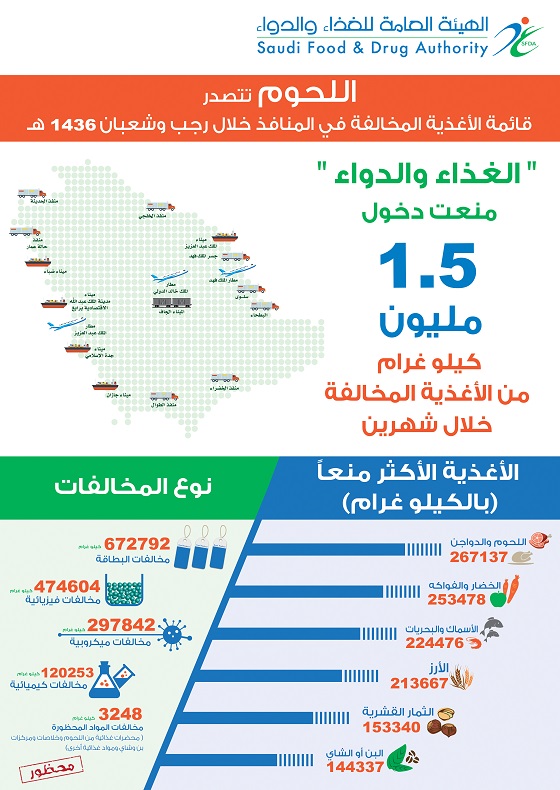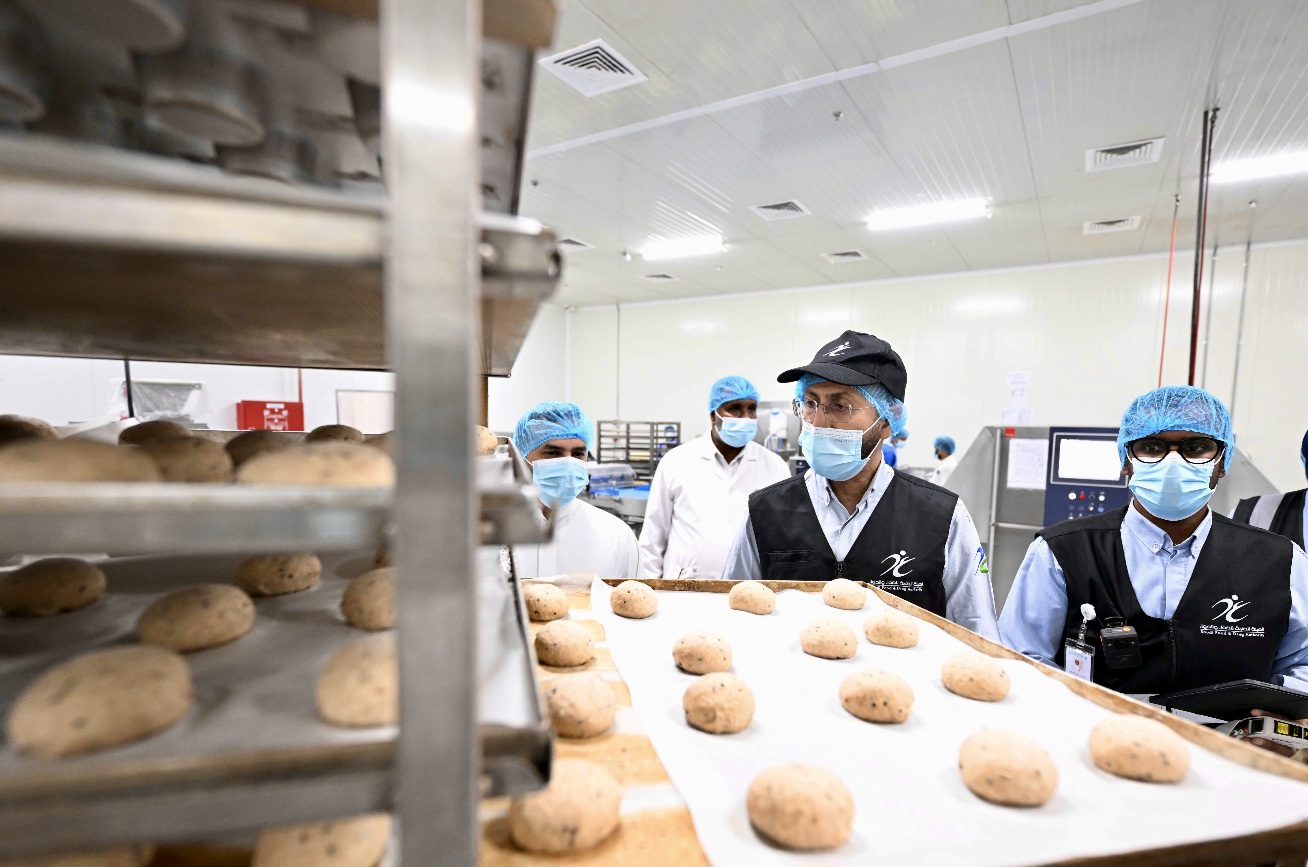SFDA Bans Entry of over 1.5 Million Kilogram of Violating Foods , in 2 months
2015-07-26
Meat and poultry topped the list of violating foods detected by SFDA inspectors at the points of entry during Rajab and Sha’ban, totaling 267137 kg out of 1568 ton of violating foods rejected at the points of entry during that period.
SFDA clarified that the rejection of these imported foods was due to violation of the approved standard specifications and technical regulations in terms of chemical, microbial, physical, labeling information or banning.
198 shipments of imported foods were rejected during Rajab, weighing 851 ton, representing 0.11% of the released shipments , i.e.,41882 shipments weighing 772778 ton
At the same time172 shipments of imported foods were rejected d, weighing 717 ton, representing 0.13% of the released shipments , i.e.,42659 shipments weighing 552293 ton.
Second to meat and poultry of violating foods list detected by SFDA inspectors at the points of entry during Rajab and Sha’ban was the vegetables and processed or preserved fruits (253478 kg), then fish and sea food (224476 kg). then rice (213667 kg) then shelled fruits ( 153340 kg), then coffee and tea (144337 kg), then milk products (63198 kg), then whole grains (51834 kg) then beverages (50826 kg), processed meat (48595 kg), the wheat flour (23970 kg) then plants concentrates and juices (20860 kg) then pasta (16660 kg) then sugar (9306 kg), then coffee and tea concentrates (7227 kg), then sugar products containing coco (7194 kg) and other food substances (12621 kg).
Food products with microbial violations weighed 297842 kg and those with chemical violations weighed 120253 kg while food products with physical violations weighed 474604 kg, foods with labeling violations weighed 672792 kg, banned substances ( processed meat, coffee and tea concentrates and other food stuff) weighed 3248 kg.
The enhancement of SFDA’s processes has much contributed to facilitation of the procedures and increasing the efficiency of control of imported food at the points of entry, particularly with the enforcement of the electronic clearance system in 1435H at all points of entry, where clearance of all shipments was only allowed through the electronic systems. This made it easy to obtain information about the products, their importers and tracking of same in case of recalling or consumer safety issues. The electronic Black Listing system, launched in 143yH also plays a critical role in tightening control on imported food.
SFDA’s processes development was recently crowned by the approval of the Council of Ministers’ of Food Regulations that authorizes SFDA to issue food standard specifications and technical rules and link release of imported food ot SFDA’s approval according to its approved conditions, requirements and procedures.
SFDA’s imported food inspectors audit and verify food certifications and documents attached to the shipments to confirm their completeness (documents verification) and check all shipment items against such documents ( to check product I.D), conduct field visits to containers for physical check to confirm compliance of all food items with the technical rules and standard specifications in addition to referral of suspected items to the laboratory for analysis.
Shipments may be rejected at any stage of the inspection process. Permission will be granted to release all items that are free of any comments or deviations and will be referred to customs on the same day, for clearance.






